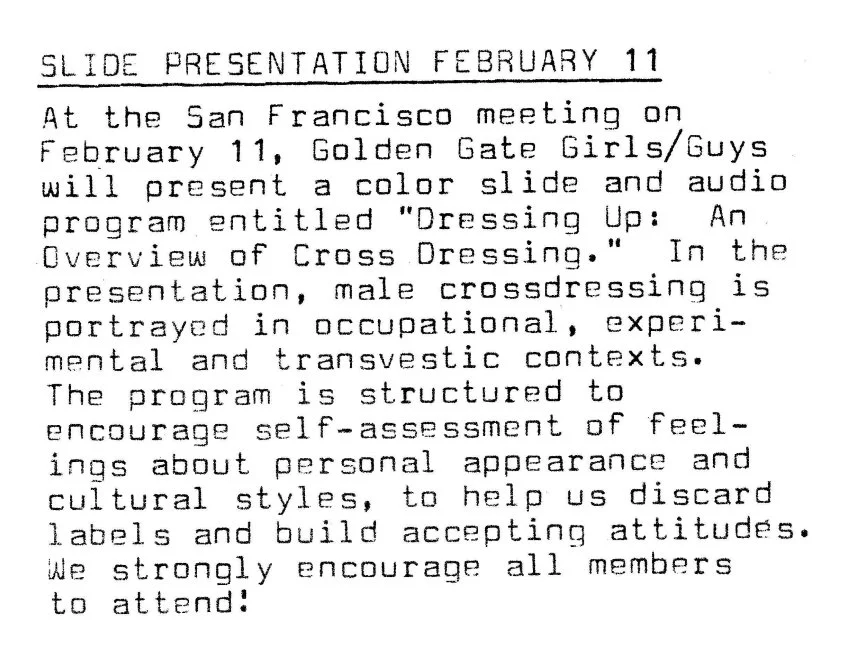Our Statement on Transphobia
Here at Biscuit, we believe:
Trans men are men
Trans women are women
Non-binary people are the gender(s) they say they are
Intersex people are the gender(s) they say they are
In 2019, we were proud to co-author the BWithTheT open letter that kicked off the BWithTheT movement. You can read it here.
You might hear people say that bisexuality is innately transphobic or that identifying as bisexual is the same as saying trans people don't exist. At Biscuit, we know neither of these things are true.
Here’s Kate Bornstein in My New Gender Workbook: A Step-by-Step Guide to Achieving World Peace,
“Bisexual movements don’t get enough credit for breaking the either/or of sexual orientation. And they did it long before gender scholars, activists, and radicals came on the scene.”
The truth is that bi+ and trans and gender diverse communites have been strong allies since the beginning of the movement for queer (then ‘gay’) liberation. We have worked alongside one another in part because both communities represent the rejection of an imposed binary. This natural affinity means that trans change-makers have been talking about the expansive nature of sexuality and bi+ change-makers have been talking about the expansive nature of gender since the 1970s and before, and as such our communities are interlinked.
It is also true that trans people are more likely to be bi+ than cis people are. In the England and Wales 2021 Census, around one third of trans and nonbinary identified as bisexual or pansexual, and a further third identified as queer, which makes it particularly important to acknowledge our shared history and communities.
Our Shared History
In the early days of bi+ activism - which we date from roughly 1981 in the UK - explicit allyship to trans communities was seen as integral to our liberation, whether those trans people were also bi+ or not.
Take this, from the original BiCon Guidelines,
3. BiCon should accept transgender people as being of their chosen gender, including for the purposes of any single gender event.
or this notice for an event educating the bi+ community on trans issues (using the language of the times) at the Bi Center in San Francisco from even earlier:
Our communities have long championed one another.
This excerpt is from Essay for the Inclusion of Transsexuals, by Kory Martin-Damon in the 1995 book Bisexual Politics.
The bisexual community should be a place where lines are erased. Bisexuality dismisses, disproves, and defies dichotomies. It connotes a loss of rigidity and absolutes. It is an inclusive term. […] Despite how we choose to identify ourselves, the bisexual community still seems a logical place for transsexuals to find a home and a voice. Bisexuals need to educate themselves on transgender issues. At the same time, bisexuals should be doing education and outreach to the transsexual community, offering transsexuals an arena to further explore their sexualities and choices. Such outreach would also help break down gender barriers and misconceptions within the bisexual community itself. […] If the bisexual community turns its back on transsexuals, it is essentially turning its back on itself.”
Transgender bi+ people also have made huge contributions to the bi+ community and our activism, and they belong and deserve to be celebrated for their work just as much as cisgender bisexuals do.
Look, for instance, at Martin Rawlings-Fein, a transgender man who co-founded the Bay Area Bisexual & Pansexual Network and San Francisco/East Bay BiCon. Or Bren Frederick, a genderqueer activist, who founded the Bi Pan Library. Then there’s Lake Faith, who is nonbinary, founded the Bi Survivors Network, and wrote Bi the Way: The Bisexual Guide to Life. Or Verity Ritchie, a genderqueer activist creating community spaces for bi+ and trans people with Kvartir, a Slovenia-based LGBTQ+ organisation. Trans and nonbinary people have been closely involved in making the bi+ community what it is.
Bi+ people know what it’s like to be rejected by both straight and gay and lesbian communites, and we know what it’s like to be sanitised out of the history of queer liberation or told we should hide our identities for the good of the movement as a whole. We should refuse to act in the same way.
Bisexuality isn't transphobic (though some bisexuals are)
Bisexuality, by definition, challenges the assumed binary nature of sexual and romantic attraction, and many bi people conceptualise their attraction not as something that encompasses two categories but something that doesn’t recognise that those categories exist, or doesn’t recognise the differences as significant.
That's not to say that some bisexual people aren't transphobic – it's a sad fact that you can find transphobia in all walks of life – but as advocates for the community, its our job to challenge that. We do not often find bisexual people involved in organised transphobic projects because the core members of those groups tend to be biphobic too, but that doesn’t mean that unpleasant and bigoted viewpoints do not exist where we don’t expect them.
It does no one any favours to claim that transphobia doesn't exist in the bi+ community, and it hurts trans, nonbinary and genderqueer bi+ people the most.
As organisers and advocates it is our responsibility to tackle transphobia wherever we find it but especially in our own communities.

